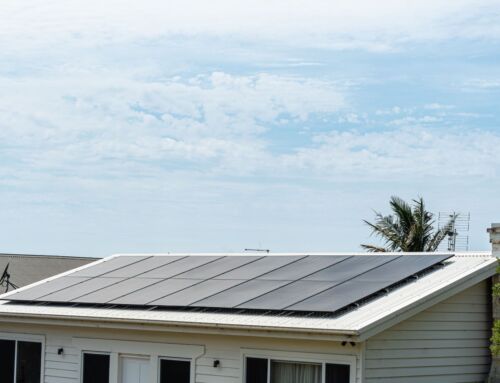
Guide to the Federal Solar Tax Credit in 2025
The federal solar tax credit is the best incentive there is for home solar panels. It makes solar panel installation significantly more affordable so you can add solar panels to your home and start saving money on your electric bills right away.
The federal solar tax credit in 2025 is the highest it’s ever been! If you’re thinking about going solar this year, you don’t want to miss out on the solar tax credit.
In this guide, we cover everything you need to know about the solar panel federal tax credit in 2025.
What Is the Federal Solar Tax Credit?
The federal solar tax credit, also known as the solar investment tax credit (ITC) or the Residential Clean Energy Credit, is a solar incentive that helps homeowners manage the upfront cost of a solar panel installation. The solar tax credit has been around for many years, but It was recently expanded as part of the Inflation Reduction Act. Because of the expansion, the tax credit is sometimes referred to as the Inflation Reduction Act solar tax credit.
The solar tax credit reduces what you owe in federal income taxes by a percentage of your solar installation costs. In 2025, the federal solar Investment Tax Credit is worth 30% of your total solar costs.
How the Federal Solar Tax Credit Works
The solar tax credit reduces your federal income tax liability by 30% of your solar installation costs for the year you install your system.
Here’s how it works:
Let’s say you spend $30,000 on a home solar installation. You’ll receive a federal tax credit worth 30% of your total costs, which comes out to $9,000. You can then apply that credit when you file your federal income tax, bringing down the amount you owe. If you owe $10,000, for example, your tax credit will bring your liability down to $1,000.
Does the Solar Tax Credit Roll Over?
Yes. If your credit is worth more than what you owe for the year you install your solar system, you can roll the remainder over into the following years.
Who Qualifies for the Solar Tax Credit in 2025?
Most residential solar panel installation projects are eligible for the federal solar tax credit, including rooftop solar panels, ground-mounted solar panels, and off-grid solar panels. The tax credit now also covers solar battery storage if the battery has a capacity rating of 3 kWh or greater.
To be eligible for the solar energy tax credit in 2025, you must:
- Own your solar system (cash purchase or financed)
- Install your solar system at a residence you own in the United States
- Have taxable income
- Install new equipment that is being used for the first time (used solar panels don’t qualify for the tax credit)
What Does the Solar Tax Credit Cover?
Almost all equipment and labor associated with a solar installation is eligible for the federal solar tax credit. This includes:
- Solar PV panels
- Solar inverters
- Solar batteries (must have a capacity rating of 3 kWh or greater)
- Racking and mounting equipment
- Electrical wiring
- Installation costs
- Permitting fees
How to Claim the Federal Solar Tax Credit
Claiming the solar tax credit is an easy process. To claim your solar credit, simply complete IRS Form 5695 and attach it to your annual tax return.
To receive the credit in a certain year, you must complete your solar installation and turn your system on by the end of that year. To claim the solar tax credit on your 2025 taxes, for example, your system must be fully installed and placed in service by December 31, 2025.
Start Saving with Solar Panels for Your Home
Thanks to incentives like the 30% solar tax credit, there’s never been a better time to install solar panels. SouthFace Solar & Electric can help you take full advantage of this tax credit with a custom solar power system for your home. We’ve been installing solar panels in Arizona since 2008 and are proud to be a leading local solar company.
If you have questions about the federal solar tax credit and how much it can help you save on solar, give us a call today. Our expert team is here to help with every step of your solar journey, whether you’re just starting, ready to go solar now, or want to expand your existing solar energy system.
Disclaimer: We’re solar experts, not tax experts! We always recommend consulting a tax professional.





